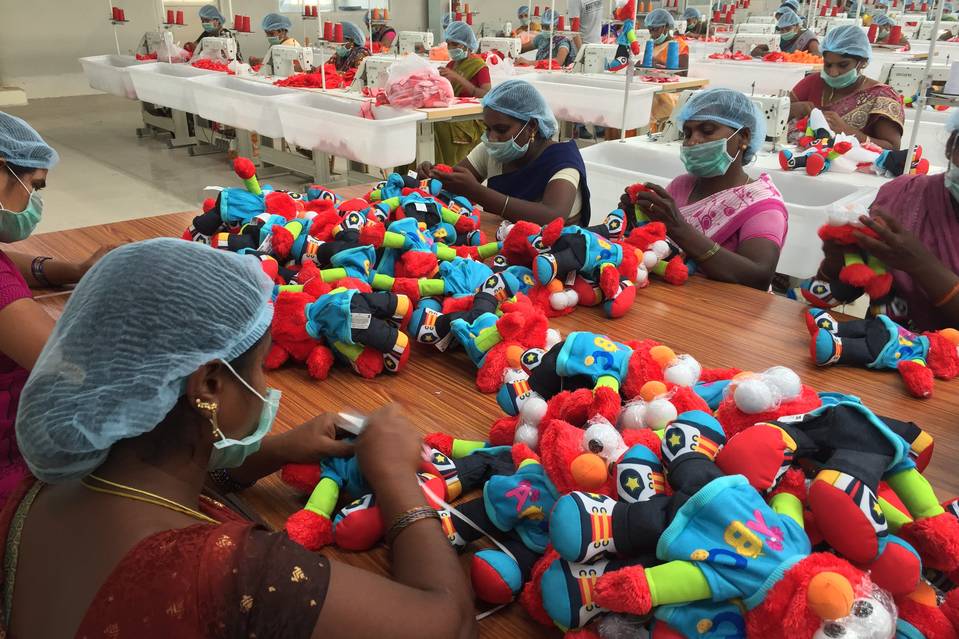Stuffed toys are everywhere. Some are being sewn, others are having their batteries tested, and some more are being packed into neat little boxes.
The toys, based on the character from the TV show Sesame Street, are, as is often the case, being made by a Chinese firm for export to the US.
What’s unusual however, is that this factory isn’t in China, but in rural Andhra Pradesh, in southern India.
It is one of more than 100 businesses in the Sri City Industrial hub – many of them Chinese – attracted by the Make in India campaign.
Launched by Prime Minister Narendra Modi last year, the ambitious campaign aims to turn the country into a global manufacturing hub.
As part of the scheme, the government has said it will incentivise foreign companies to manufacture in India.
The founder of the industrial zone, Ravindra Sannareddy, says the incentives make India a very attractive manufacturing base for Chinese companies.
“A lot of companies from China, which traditionally used to export their products to India, are now taking advantage of these incentives to come to India, put their manufacturing facilities here, and cater to the demand here,” he says.
It’s not just the financial benefits which are attractive to foreign firms.
The industrial hub is situated way out in the countryside, but finding labour has been easy.
Mr Reddy estimates that they have at least 200,000 employable youth in the surrounding villages.
You can see a lot of them working in factories here.
India is selling to the world – its young, cheap workforce. Two thirds of India’s population is under 35, and in the next decade, India will have more people of working age than anywhere else.
The various attractions have persuaded manufacturing giant Foxconn, best known for making Apple iPhones, and which already employs over a million people in China, to develop at least 10 factories in India – investing $20bn.
Quality of life?
But while cheap and abundant labour is bringing them here, some Chinese firms say the Indian government still needs to cut red tape.
“I wish the government here was a lot more efficient. It needs a lot of improvement,” says Chen Zhaofeng, director of ZTT India, which makes fibre-optic-communication and power-transmission products.
As the number of Chinese expats increase, there is one other common concern – quality of life.
Many wish there were more entertainment venues, supermarkets or global restaurants here like in major cities.
Those concerns aren’t enough to deter Chinese companies building more factories here
But if India’s creaking infrastructure is not overhauled, it may lose out on a long-term opportunity to grab more business from its biggest Asian riva


